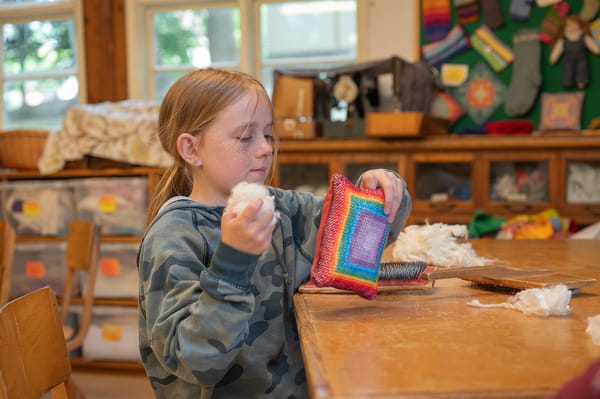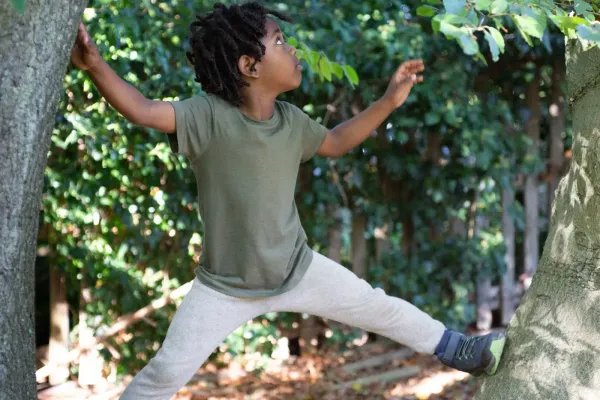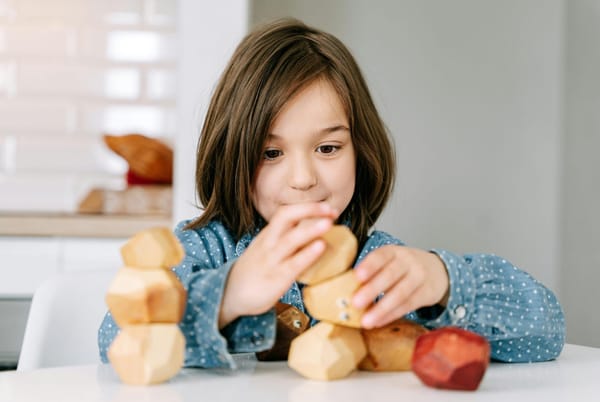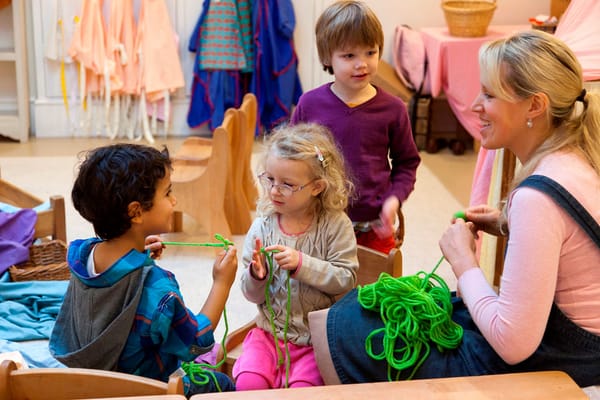Karen Lee discovers the answer to one of the most common question asked by home-educating parents - how much should I do?
During my years of de-schooling, as I journeyed towards really understanding unschooling, I struggled with one main question: How much should I do? How much should I suggest and offer ideas and activities? I couldn't get my head around it. I was learning to trust that my children would learn from living life.
I was learning to set them free but I wasn't sure how much to "let them be", and how much I needed to suggest ideas for activities and outings, etc. How active should my role be? When I heard about the concept of strewing (or scattering of useful educational resources around the home) I realised I had found my answer. The problem was how to go about doing it.
Unsuccessful Strewing
I would take my children to the library and get frustrated if all they wanted to borrow was DVDs instead of "all those interesting books". We would come home with piles of borrowed material anyway. Lots of it would not be looked at and I would feel sad at what a waste it was.
I would leave an interesting library book open on the coffee table and it would often stay untouched. I would suggest an outing or activity and the response would often be, "No thanks, I'm not really interested," or "Maybe” and my heart would sink. I was hoping for something more like, "Yeah, Mum, that's an awesome idea!"
For ages I was completely unaware that when they responded without the enthusiasm I'd hoped for, I would subconsciously do my "magical manoeuvere": a super-subtle eyeroll that was totally obvious to my children. They could sense it somehow, and hear the almost-silent sigh. They knew. They knew I was not happy with their response. That what I was offering was something I really wanted them to want to do. If they didn't respond with boundless enthusiasm, I took it personally. I judged their choice as "less than". I really thought they should do it, or at least want to do it.
Expectations and Shouldness
But "should-ness" is soul sapping. Maybe their lacklustre response was because of the attachment I had unknowingly placed on the activity, or perhaps they honestly just weren't interested. Either way, my subtle response was not so subtle in its damaging effect on their deschooling journey.
And it was damaging to me: my trust would decrease and my frustration would increase. I had this picture in my head of what our life outside of school should look like, and their responses to my occasional suggestions weren't in keeping with my idea. I was way too attached to my desired outcome; to their enthusiastic response. So when it wasn't forthcoming, I was disappointed. And they knew it.
What I was doing wasn't really strewing at all: it was product placement! With a very clear expectation that they would "purchase" what I was selling. Their responses to my early strewing attempts helped me to learn that the things I was placing around the house, or suggesting we do, had big ugly strings attached. They were also often too "schooly," especially for those early deschooling days. I was still thinking in school subjects, so was mostly offering things that would tick an imaginary educational box for me and a glassy-eyed box for them: perhaps a history documentary or a science experiment for example. The evidence that I overdid that kind of strewing is that my two oldest children who are now almost sixteen and nineteen still mention history documentaries and science experiments from time to time with a not-so-subtle rolling of their eyes!
Beyond School Subjects
My "strewing" during our deschooling years looked more like stuffing things down their throats, expecting them to lick their lips and ask for more! To their credit, they knew that they needed more freedom than that and so they did not lap up my lashings of schooly strewing. Their resistance drove me crazy, but when I look back I can see they were still in process of unschooling, needing to detox from everything "school," and find their happy joyful place.
It took conscious effort to let go of my attachments and expectations, and to learn to love and honour what mattered to them, not me. Instead of suggesting that we read a historical novel together, or subscribe to an "educational" magazine, I would probably have been better off playing the video game they loved - with them, going to the beach and exploring the rock pools - without an agenda, cooking delicious food - without the "lesson”. I needed to learn that life is bigger than school; bigger than school subjects. And life is richest and most wonderful when there is no expectation or agenda attached to suggestions or scattered objects.
Finally I learned that bringing more of what the children love into their lives is better than trying to "balance" it out by suggesting something different. By being interested in what interests them, and being interesting myself, our life becomes more... interesting! When I want to suggest something that they are unlikely to stumble upon themselves, it can and should be as natural as the way I might call my husband over to see something cool, or email him a link to something I think he might like, or buy something I know he has been wanting to get.
From Product Placement to Natural Strewing
We lived in a Christian community once, whose slogan was to let your spiritual life be natural, and your natural life be spiritual. It should be the same with strewing: it moves from "product placement" to strewing when our suggestions or scatterings are totally relaxed and natural, when there is no hidden agenda that they should learn something, no expectation that they should say yes to our suggestion.
So I finally realized that strewing should mean that I share without expectation of an enthusiastic Yes. And that I bring things into our world without strings attached. And if the children say "No thanks", then that's because they want to do something that for them, in that moment, is even more wonderful than what I am offering.
When I bring wonderful, new, different and intriguing things into our lives without any pressure or expectation, our wonder and enjoyment increases. When I tickle our senses with new smells, tastes, sounds and objects, we engage more fully with our world. When I spontaneously point something out rather than pre-plan it, they are far more likely to respond with a "Wow, that's cool, Mum!" rather than feeling like they’ve been manipulated. When I offer a swirling smorgasbord of opportunities and objects because they're wonderful, not because they tick a school box, life is more delicious!
I eventually realised that I had been looking at my initial question the wrong way entirely. The issue wasn't about finding a balance between activity and passivity on the part of parent and child; we should both be active participants in this wonderful unschooling life.
Karen is an Australian unschooling mum to four children. She loves to question the status quo of just about everything!
MORE INSPIRATION
VISIT naturalchild.org for articles
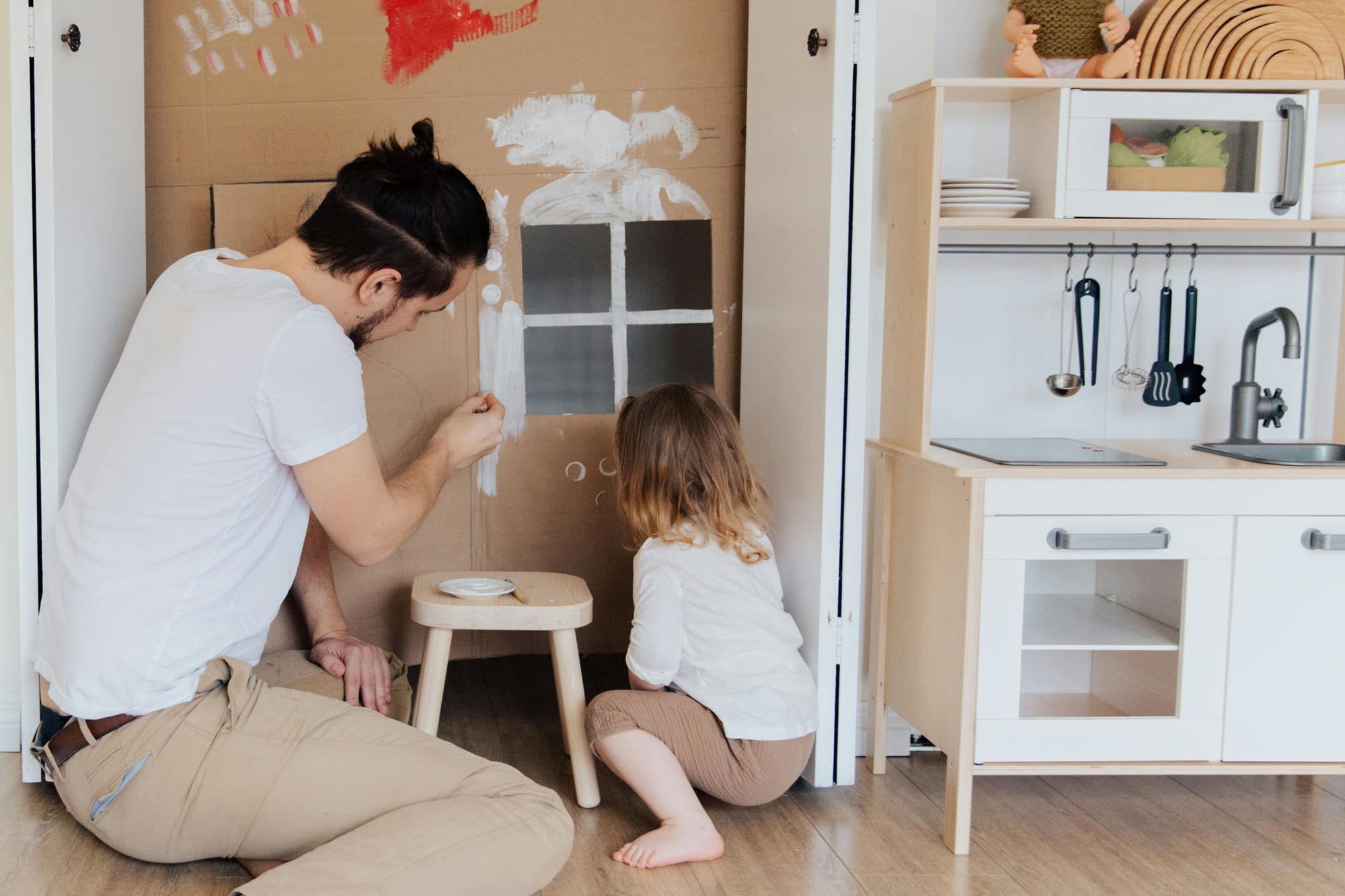
Try this at Home
Rachel Brown (racheous.com) believes that strewing is all about potential – here she offers her top tips for getting it right.
• Set up a new area (even a simple shelf) related to your child’s interest.
• Leave out an invitation to be creative with new art supplies/ junk items for recycling.
• Place together tubes and/or ramps with appropriately sized cars, marbles, or loose parts.
• Set up a small world play invitation with pieces of coloured fabric, animals or toy people.
• Leave something to take apart, with tools alongside.
• Reintroduce or introduce maths manipulatives such as counters, connecting cubes, pattern blocks, tangrams, dice, a hundreds board, graph paper, or rulers with a material that relates to a current interest (i.e. some tangram or pattern cards with animals that they are interested in).
• Put an interesting book beside a current project, open to interesting pictures.
• Magnetic letters, numbers or shapes set next to a metal cookie sheet.
• Set out a puzzle or game.



